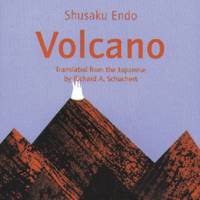In "Volcano," first published in 1959, Shusaku Endo examines the fates of characters linked to the condition of a volcano he names "Akadake," based on the active cone of Sakurajima in Kagoshima. During the research for the novel, Endo is said to have chartered a helicopter so that he could peer firsthand into its caldera.
Volcano, by Shusaku Endo, Translated by Richard A. Schuchert
176 pages
TUTTLE, Fiction.
Historically, Kyushu has been the stage for many of the primary dramas of Christianity in Japan. "Volcano," like other Endo novels — such as "Silence," "When I Whistle," and "Scandal" — is an inquiry into the unexamined piety of many Japanese Catholics and the uneasy fit between the religion and the country's indigenous culture and psychology. Like his friend and admirer, the novelist Graham Greene, Endo used fictional characters to act out dilemmas that stemmed from seeing himself as a flawed Catholic.
"Volcano" examines the fate of two men of advanced age: a weather bureau chief and a disgraced French priest. A third presence — a backdrop to the moral vacuum of the characters — is the brooding form of the volcano itself, which may erupt at any moment.
As the characters peer into the void of their inner selves, which seem inextricably linked to the fate of the cone, the embittered French priest yearns for a disaster of biblical proportions — one that will wash away the island's new Christian retreat and shatter the faith of its handful of parishioners.
Read archived reviews of Japanese classics at jtimes.jp/essential.


















With your current subscription plan you can comment on stories. However, before writing your first comment, please create a display name in the Profile section of your subscriber account page.